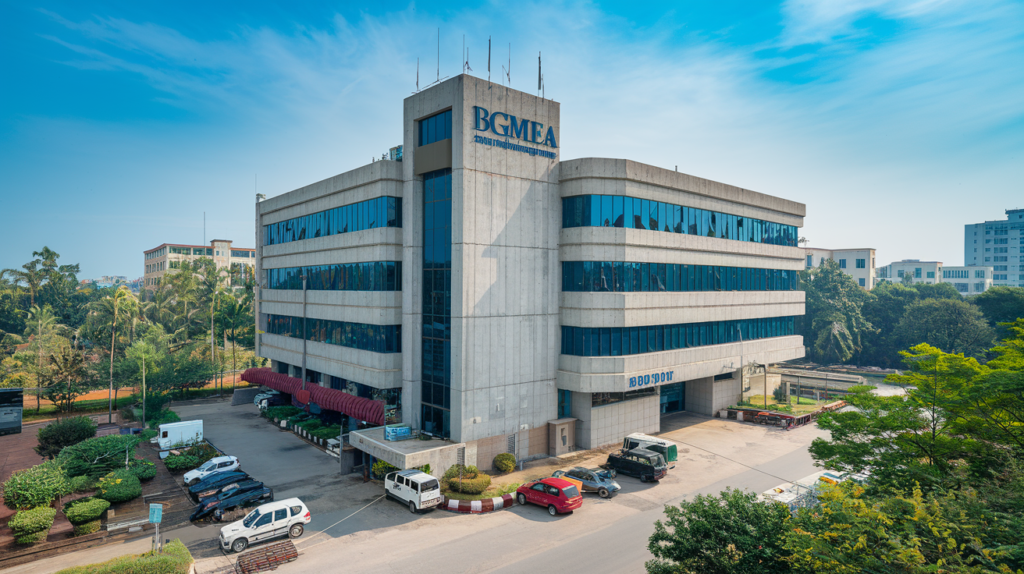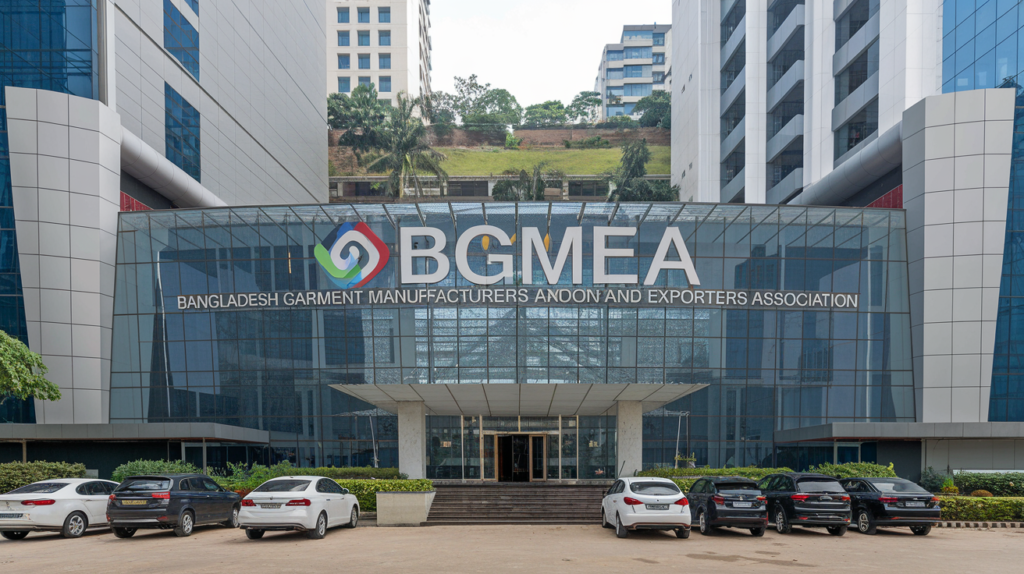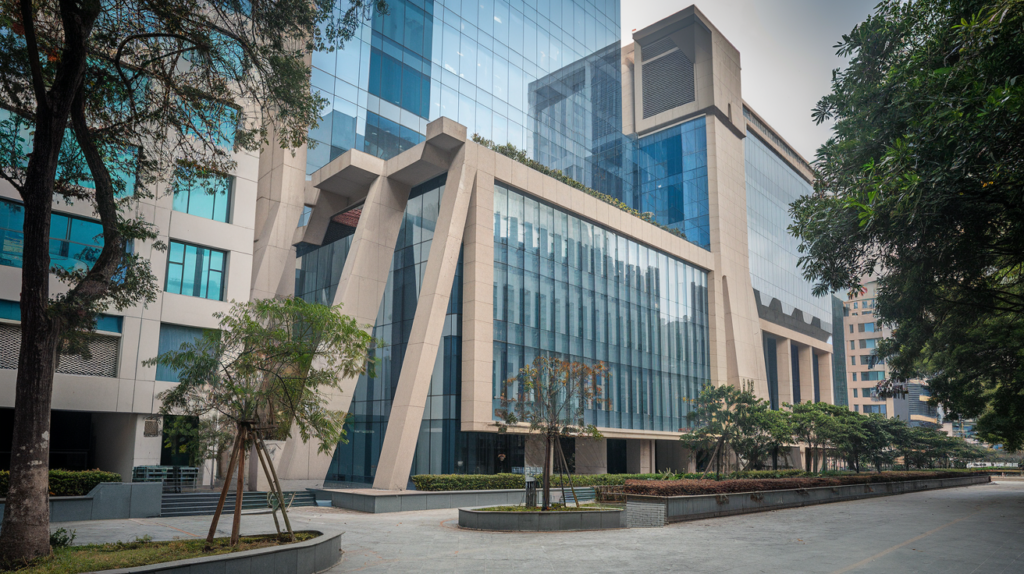The Bangladesh Garment Manufacturers and Exporters Association, commonly known as BGMEA, stands as a monumental pillar in the global garment manufacturing landscape. With Bangladesh being one of the largest garment producers in the world, the significance of BGMEA cannot be overstated. This organization plays a crucial role in representing garment manufacturers, fostering trade relationships, advocating for better working conditions, and driving sustainability in the industry.
In this article, we will delve into the core functions of BGMEA, its role in shaping the future of the industry, and how it continuously evolves to meet global challenges. The impact of BGMEA on Bangladesh’s economy, social compliance, and the ongoing movement towards eco-friendly practices will also be explored.
Table of Biography
Here is a comprehensive table providing essential information about BGMEA:
| Category | Details |
|---|---|
| Full Name | Bangladesh Garment Manufacturers and Exporters Association (BGMEA) |
| Founded | 1983 |
| Headquarters | Dhaka, Bangladesh |
| Industry | Garment Manufacturing, Ready-Made Garments (RMG) |
| Key Purpose | Representing garment manufacturers and exporters in Bangladesh, promoting trade, advocating for workers’ rights, and encouraging sustainable practices in the garment sector. |
| Membership | Represents thousands of garment factories and exporters, including large and small companies. |
| Key Activities | Advocacy, promoting worker rights, sustainability initiatives, international collaborations, providing member services, and engaging in policy-making. |
| Significant Achievements | – Promoting green factories and eco-friendly practices |
What is BGMEA?
The BGMEA is a nationwide trade organization established to represent the interests of garment manufacturers and exporters in Bangladesh. Since its inception, the organization has been instrumental in promoting the ready-made garment (RMG) sector, which serves as the backbone of Bangladesh’s economy. The organization works as a bridge between the government, factory owners, workers, and global trade partners, ensuring that the RMG industry remains competitive and sustainable in an ever-changing global market.
Core Functions of BGMEA
BGMEA serves several essential roles that contribute to the growth and stability of the Bangladeshi garment industry. Below are some of the primary functions of the organization:
Advocacy for Industry Interests
One of the central roles of BGMEA is advocating for the interests of its members. The association works tirelessly to represent the needs of garment manufacturers to the government, policymakers, and other stakeholders. Whether it’s negotiating for favorable trade policies, improving the labor environment, or ensuring fair wages, BGMEA is at the forefront of driving industry growth.
Member Services and Support
BGMEA offers a wide range of services to its members. These services can include technical support, business development resources, and networking opportunities that allow garment manufacturers to stay ahead of industry trends. By providing such services, BGMEA ensures that manufacturers can scale their businesses while adhering to global standards.
Promoting Worker Rights and Social Compliance
In recent years, BGMEA has worked vigorously to promote better working conditions within garment factories. The association has taken steps to implement social compliance programs, focusing on ensuring that workers are treated fairly and with respect. This includes adherence to local and international labor laws, improving safety standards, and ensuring that workers’ rights are upheld.
Fostering Sustainability
Sustainability is becoming increasingly vital in the global textile and garment sectors. BGMEA has recognized this shift and has taken significant strides toward promoting sustainable practices within the industry. The organization actively works with factories to adopt eco-friendly practices, including waste reduction, energy-efficient production methods, and the use of environmentally responsible materials. BGMEA encourages members to pursue certifications such as LEED (Leadership in Energy and Environmental Design) for green factories.
The Role of BGMEA in Bangladesh’s Economy
Bangladesh’s RMG sector is one of the largest in the world, contributing significantly to the country’s economy. The industry is a major source of employment, offering jobs to millions of people, especially women. As the largest exporter of garments in the world, Bangladesh owes much of its success to the advocacy and leadership of BGMEA.
By facilitating trade relationships, improving export practices, and representing the interests of manufacturers on the global stage, BGMEA helps strengthen the sector’s global competitiveness. Moreover, the association plays a pivotal role in addressing challenges that arise, such as changes in international trade regulations, tariffs, and the movement towards ethical manufacturing practices.
BGMEA and Global Partnerships
One of the significant features of BGMEA is its ability to build strong collaborations both within Bangladesh and with international stakeholders. The organization has partnered with several brands, development partners, and local NGOs to improve the garment supply chain. This collaborative approach ensures that BGMEA stays updated on the latest industry trends, technological advancements, and sustainability practices.
Notable collaborations include partnerships with sustainability-focused organizations such as Cascale. These partnerships focus on promoting green factories, evaluating data sharing, and improving overall supply chain transparency. By working with global brands and stakeholders, BGMEA continues to position Bangladesh as a responsible, ethical, and sustainable manufacturing hub.
Sustainability Initiatives Led by BGMEA
The global apparel industry is under increasing pressure to address its environmental impact, and BGMEA is at the forefront of these efforts in Bangladesh. The organization has initiated several sustainability programs aimed at reducing the industry’s carbon footprint. These initiatives include:
- Promoting Circular Economy Practices: Circular economy practices focus on reducing waste and reusing materials. BGMEA is working with manufacturers to implement these practices, ensuring that garments are produced with sustainability in mind.
- Eco-Friendly Factory Certifications: BGMEA encourages factories to achieve eco-friendly certifications like LEED, which recognizes buildings and manufacturing processes that are environmentally responsible and sustainable.
- Water Conservation and Waste Management: Water and waste management are critical areas in garment production. BGMEA promotes techniques that reduce water consumption and encourage better waste disposal and recycling methods.

BGMEA and the Transition from LDC Status
Bangladesh is in the process of transitioning from a Least Developed Country (LDC) status to a developing country. This shift comes with both opportunities and challenges. For BGMEA, this transition represents a major milestone. The changes in international trade agreements and regulations will impact how Bangladesh engages with the global market. BGMEA is actively involved in preparing the garment sector for these changes, ensuring that the industry adapts to new economic and trade landscapes.
With Bangladesh’s economic future intertwined with the garment industry, BGMEA is working hard to ensure that the transition is smooth, and that the RMG sector continues to thrive in the post-LDC era.
Why BGMEA Is Crucial for Bangladesh’s Future
As the global demand for ethically produced and sustainable garments continues to rise, BGMEA’s role will become even more pivotal. The organization’s commitment to fostering ethical practices, ensuring social compliance, and advocating for its members makes it an indispensable part of Bangladesh’s garment industry. Through its dedication to sustainability, worker welfare, and industry growth, BGMEA plays a key role in shaping the future of the RMG sector not only in Bangladesh but across the globe.
Moreover, as Bangladesh continues to transition into a developing country, BGMEA will help navigate these changes, ensuring that the industry adapts to evolving regulations, markets, and consumer demands. This will position Bangladesh to remain a competitive player in the global garment market for years to come.
The BGMEA stands as a testament to the strength, adaptability, and potential of Bangladesh’s garment sector. Through its advocacy, sustainability efforts, and focus on worker rights, the organization continues to enhance Bangladesh’s position in the global apparel industry. As the world moves towards more ethical and eco-friendly practices, BGMEA is committed to leading the charge, ensuring that Bangladesh remains a top player in the garment manufacturing world.
The organization’s focus on sustainability, social compliance, and global collaborations ensures that the future of the garment industry in Bangladesh is bright, resilient, and responsible. For manufacturers, workers, and consumers alike, BGMEA is a symbol of progress and a crucial factor in the success of the Bangladeshi garment industry.
The Future of BGMEA: Challenges and Opportunities
As the garment industry in Bangladesh continues to grow, BGMEA faces a number of challenges and opportunities that will shape the future of the sector. The global textile and apparel markets are constantly evolving, and BGMEA is adapting to these changes while ensuring that the interests of its members are well-represented. In this section, we’ll explore some of the key factors that will impact the future of BGMEA and the Bangladeshi garment industry.
Challenges Faced by BGMEA
1. Rising Global Competition
Bangladesh has long been one of the leading players in the garment manufacturing sector, but rising competition from other countries is a persistent challenge. Countries like Vietnam, India, and Cambodia are investing heavily in their textile and garment industries, offering lower production costs and improved infrastructure. BGMEA must ensure that Bangladeshi garment manufacturers remain competitive by promoting innovation, quality, and efficiency in production processes.
2. Adapting to Global Sustainability Trends
The garment industry is facing increasing pressure from consumers, brands, and governments to adopt more sustainable practices. This includes everything from reducing carbon emissions to ensuring fair wages for workers and implementing environmentally friendly production methods. For BGMEA, meeting these global sustainability expectations is a key challenge. The organization is working with its members to foster practices like energy-efficient manufacturing, waste reduction, and sustainable sourcing of raw materials.
While Bangladesh’s garment sector is already a leader in affordable mass production, adapting to the demand for more sustainable and ethical practices will require continuous investment in technology and training. As the global demand for eco-friendly products grows, BGMEA must help manufacturers transition to greener production methods without compromising on profitability.
3. Labor and Safety Concerns
Labor rights and safety concerns in the garment industry have been a hot topic for years, and BGMEA has worked hard to improve conditions within the factories. However, challenges remain in ensuring that every factory adheres to social compliance standards. With international brands demanding greater transparency and accountability in supply chains, BGMEA has a responsibility to ensure that labor standards are met, workers are treated fairly, and safety protocols are strictly followed.
Despite improvements over the years, incidents like factory fires or building collapses can tarnish the industry’s reputation. BGMEA is committed to creating a safer and more equitable working environment, but the path to achieving this across all factories remains a work in progress.
4. Shifting Trade Regulations and Tariffs
As Bangladesh moves from an LDC status to a developing nation, it faces the challenge of navigating new trade regulations and tariffs. This shift will affect Bangladesh’s preferential trade access to several international markets. For BGMEA, one of the immediate concerns will be how these changes impact export relationships, especially with key partners like the European Union and the United States.
As trade dynamics change, BGMEA must be proactive in ensuring that Bangladeshi manufacturers maintain access to international markets through new trade agreements and by complying with the evolving requirements of global buyers.
Opportunities for BGMEA and Bangladesh’s Garment Sector
Despite these challenges, BGMEA and Bangladesh’s garment industry are presented with several promising opportunities that could strengthen the sector’s position on the global stage.
1. Embracing Innovation and Technology
Technology will play a key role in driving the future of Bangladesh’s garment sector. BGMEA has been working closely with local manufacturers to integrate advanced technologies into production, such as automated sewing machines, data analytics for production optimization, and AI-driven supply chain management systems.
By embracing technology, manufacturers can not only reduce costs but also improve product quality and efficiency. Additionally, technology can help improve sustainability efforts by streamlining processes and reducing waste. BGMEA has already facilitated training programs and partnerships with technology providers to help local manufacturers integrate these innovations into their operations.
2. Expanding into High-Value Products
While Bangladesh is known for producing low-cost garments, there is a growing opportunity for the country to tap into high-value products such as luxury garments, technical textiles, and high-fashion items. BGMEA has been advocating for the diversification of the product range to include more value-added products that can generate higher profits and cater to evolving consumer tastes.
By investing in specialized skills, machinery, and product development, Bangladesh can position itself as a leader in high-value garment manufacturing. This move could also help mitigate risks associated with price competition in basic apparel and provide a stable path for future growth.
3. Sustainability as a Competitive Edge
Rather than viewing sustainability as an obstacle, BGMEA is working to turn it into an opportunity. As more consumers demand ethically produced, sustainable products, Bangladesh’s garment manufacturers are well-positioned to capitalize on this shift. The growing global preference for eco-friendly and socially responsible fashion creates a significant opportunity for Bangladeshi manufacturers to lead the way in sustainability.
BGMEA is actively promoting sustainable practices like water recycling, energy efficiency, and the use of organic materials, which will improve the environmental footprint of the sector. By continuing to focus on green manufacturing, BGMEA can help its members stand out in the crowded global market and attract eco-conscious buyers.
4. Expanding Export Markets
One of the most significant opportunities for BGMEA and the garment sector is expanding into new and emerging export markets. While Bangladesh has traditionally focused on the United States and Europe, emerging economies in Asia, Africa, and Latin America present untapped opportunities for growth.
By fostering new trade relationships and diversifying the customer base, BGMEA can reduce the risk of over-dependence on a few markets and strengthen Bangladesh’s position as a global garment exporter. Additionally, with trade agreements on the horizon and changes in global trade dynamics, BGMEA has the chance to negotiate better access to these developing markets.

Conclusion: The Vital Role of BGMEA in the Future of the Garment Industry
As we’ve seen, BGMEA plays a vital role in the success and sustainability of Bangladesh’s garment industry. From advocating for better working conditions to promoting eco-friendly practices, the organization is steering the industry towards a future that is not only profitable but also responsible and ethical.
In the face of challenges like global competition, evolving trade regulations, and the need for technological innovation, BGMEA is showing resilience and determination. By embracing sustainability, advocating for fair labor standards, and helping manufacturers adopt new technologies, the organization is positioning Bangladesh to remain a key player in the global garment market.
The future of BGMEA is bright. As the industry adapts to changing global demands, BGMEA will continue to lead the way in making Bangladesh’s garment sector a model for the world to follow. Whether it’s through innovation, sustainability, or expa

